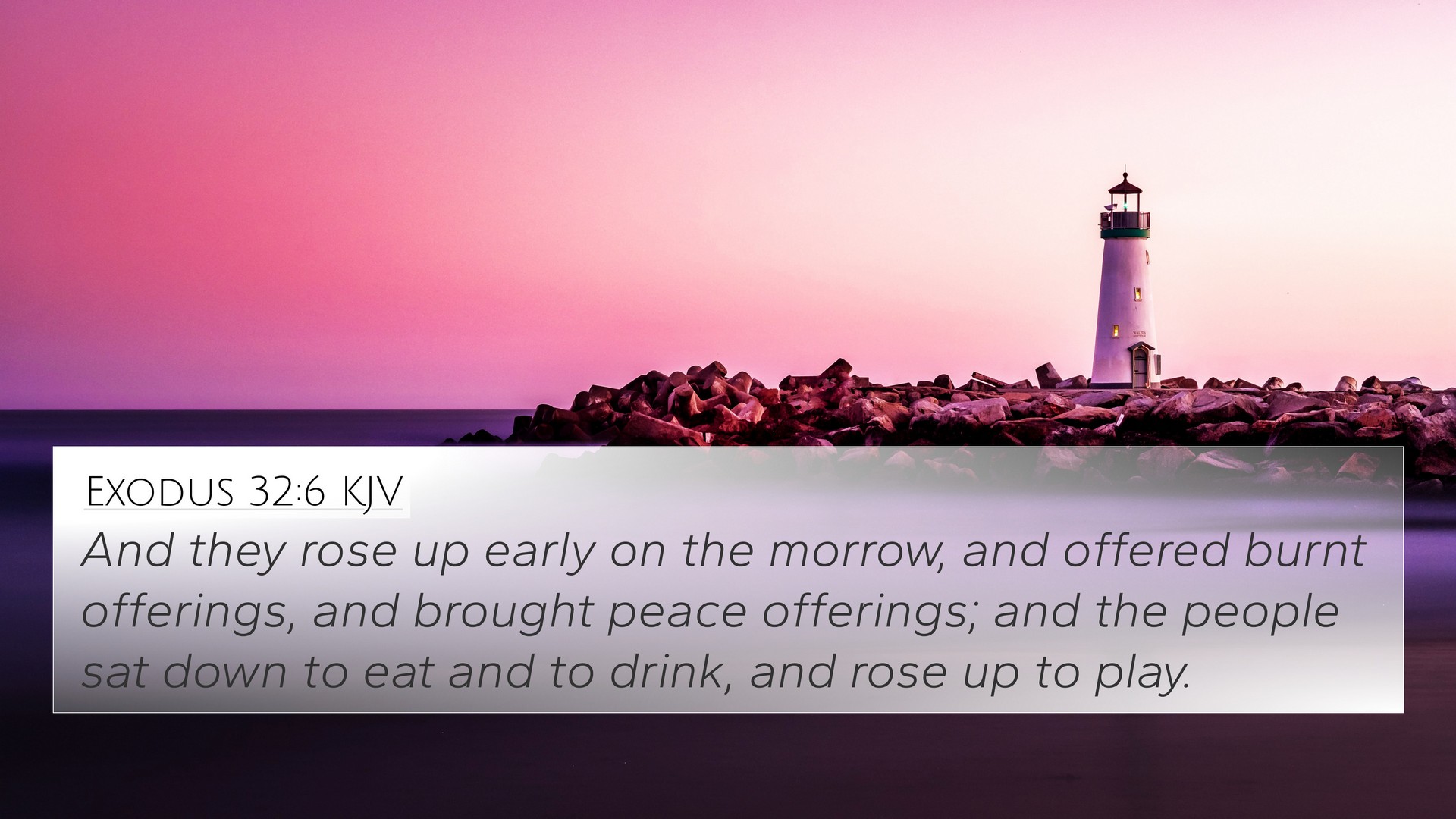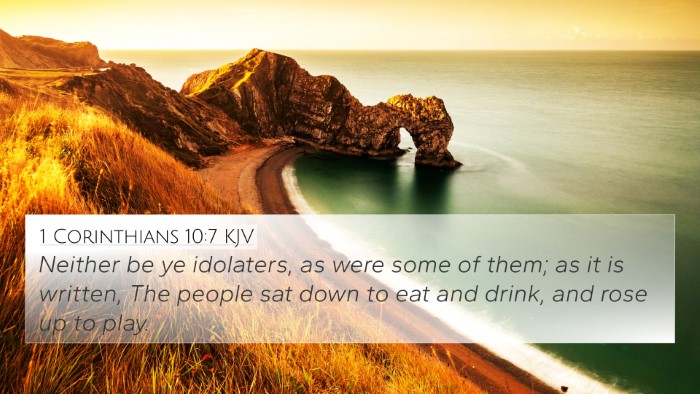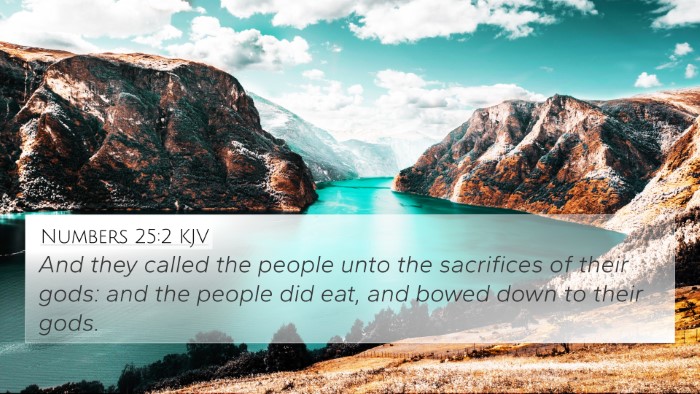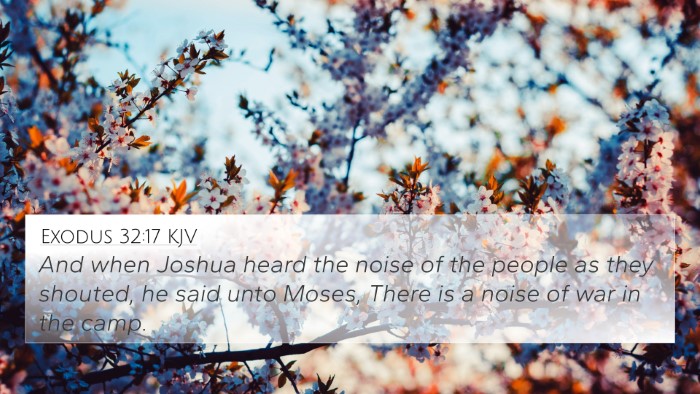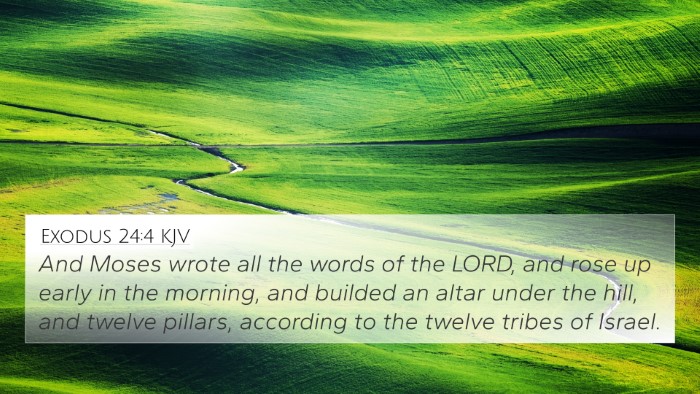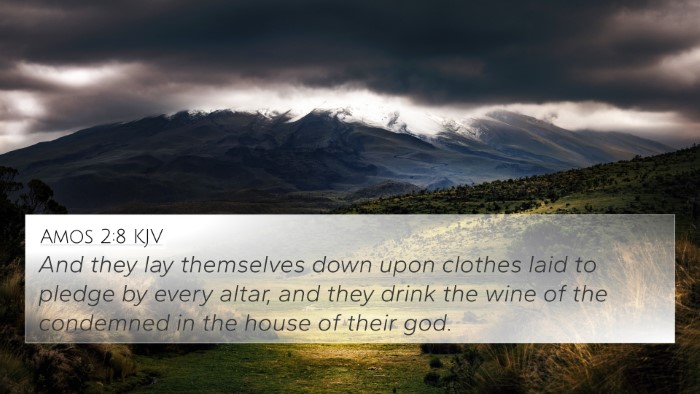Meaning and Interpretation of Exodus 32:6
Exodus 32:6 states:
"And they rose up early on the morrow, and offered burnt offerings, and brought peace offerings; and the people sat down to eat and to drink, and rose up to play."
This verse comes at a crucial moment in the narrative when Moses is receiving the Law on Mount Sinai. It follows the people's impatience that leads them to create a golden calf, a direct violation of God’s commandments.
Summary of Insights from Public Domain Commentaries
The following insights are compiled from esteemed public domain commentaries such as those by Matthew Henry, Albert Barnes, and Adam Clarke.
Contextual Significance
This passage highlights the people's immediate reaction after the construction of the golden calf:
- Matthew Henry: Henry emphasizes the quickness of the people's departure from God's ways. They urgently sought to worship something tangible, revealing their lack of faith in Moses’ return and God’s presence.
- Albert Barnes: Barnes notes the contrast between worshiping the true God and the pagan practices the Israelites resorted to. This served as a deviation from their covenant relationship with God.
- Adam Clarke: Clarke points out that the people, even after witnessing God's miracles, chose to engage in revelry and idolatry, demonstrating a moral decline and spiritual blindness.
Thematic Implications
This verse speaks volumes about human nature and the potential for disobedience:
- Human Instability: The Israelites, once freed from slavery, quickly swayed from loyalty to God to idolatry, showing the fragility of faith when faced with uncertainty.
- Divine Authority: The significance of offerings in their worship practices is illustrated here; they believed they could appease God through rituals while engaging in sinful behavior.
- Spiritual Complacency: Their actions demonstrate how quickly people can become complacent and indulge in worldly pleasures, neglecting their relationship with the Almighty.
Cross-References to Exodus 32:6
There are multiple Bible verses that relate to the themes depicted in Exodus 32:6:
- Exodus 20:3-5: God's command against idolatry is foundational to understanding the severity of the people's actions.
- 1 Corinthians 10:7: Paul warns against idolatry, referencing the behavior of the Israelites, highlighting the continuous relevance of this sin.
- Psalm 106:19-20: This psalm recounts the idolatry of the Israelites, being a direct parallel to Exodus 32:6.
- Deuteronomy 9:12: Moses reminds the people of their sin in making the calf while he was receiving the Law.
- Galatians 5:19-21: Paul lists specific acts of the sinful nature, implying a correlation to the revelry exhibited in Exodus 32:6.
- Romans 1:21-23: This passage discusses the folly of exchanging the glory of God for images, similar to the actions of the Israelites.
- Acts 7:41: Stephen recounts the golden calf incident in his speech, reinforcing the historical and moral lesson.
Application and Relevance
In contemporary times, this verse prompts believers to reflect on the nature of their worship and the influences that can lead them astray:
- Assessing Idols: Just as the Israelites fashioned a god of gold, modern adherents must identify and dismantle anything that distracts from true worship.
- Community Influence: The collective actions of the people serve as a warning about peer pressure and the societal tendency to conform to popular opinions or practices.
- Call for Vigilance: This passage urges individuals to regularly check their faith commitments and avoid the complacency that led the Israelites astray.
Tools for Bible Cross-Referencing
Understanding how to identify connections between Bible verses can enhance one's study:
- Bible Concordance: A useful resource for finding words and phrases related to biblical text to facilitate deeper understanding.
- Cross-Reference Bible Study: Methods and guides that assist in examining verses in parallel, such as thematic studies or verse-specific cross-referencing.
- Comprehensive Bible Cross-Reference Materials: Tools that show interconnections between Old and New Testament passages, providing a broader scriptural context.
Conclusion
Exodus 32:6 serves as a profound lesson on the consequences of turning away from God and seeking fulfillment in earthly substitutes. By analyzing connections between this verse and others, we acknowledge the timeless admonition against idolatry and the importance of unwavering faith.
